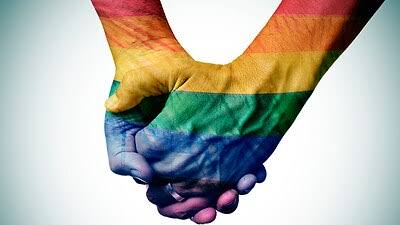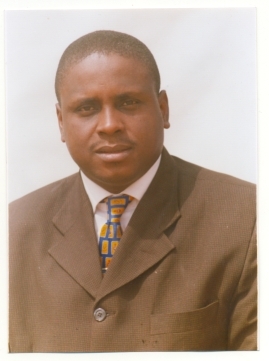LGBT: Being Nigerian and Gay is Unlawful?

By Ezinwanne Onwuka
Homosexuality is a contentious issue in Nigeria; the country does not allow or recognize LGBT rights. Most religious groups brand it a corrupting Western import. Many Nigerians believe that homosexuality is a way of life that the society should not accept. Thus, the lesbian, gay, bisexual and transgendered person is considered a deviant and subjected to multifaceted forms of social, economic, political and legal discrimination.
It is to be recalled that on January 7, 2014, Nigeria’s ex-president, Goodluck Ebele Jonathan signed the Same-Sex Marriage Prohibition Bill (SSMPA) into law. The major purpose of the SSMPA is to prohibit marriage between persons of the same sex. In reality, however, its scope is much wider. The law forbids any cohabitation between same-sex sexual partners and bans any “public show of same-sex amorous relationship”. The SSMPA imposes a 10-year jail sentence on anyone who “registers, operates or participates in gay clubs, societies and organizations” or “supports” the activities of such organizations. Punishments are severe, ranging from 10 to 14 years in prison. Hence, the SSMPA effectively criminalizes LGBT persons based on sexual orientation and identity.
The signing of the SSMPA bill into law reveals, largely, how unconducive and harsh the country is for LGBT persons. The SSMPA, in many ways, officially authorizes abuses against LGBT persons. Thus, making a bad situation worse. The law has become a tool used by police officers and members of the public to legitimize multiple human rights violations perpetrated against LGBT persons.
Such violations include torture, sexual violence, arbitrary detention, extortions, religious conversion therapy, blackmail, public ostracism etc. It is risky to report these injustices to the police, who have openly advised LGBT persons to leave the country or risk persecution. Hence, there is no legal protection for LGBT persons against discrimination in Nigeria.
Religion is central to Nigeria’s culture of homophobia. Clerics see homosexuality as the work of demons and waste no time to subject the LGBT person to a conversion therapy, which involves using prayer against one’s sexuality and personhood.
Ade (full name withheld), told the story of how he was made to go through an exorcism to “expel the demon of homosexuality” at the age of sixteen (16): “the priest came to the house with candles, holy water and anointing oils. I had to kneel down, holding candles in my hands. He kept shouting, “Come out! Come out! Come out! in a fevered voice…I was allowed to go back to church after that but I had to pretend to be straight.”
In the same vein, a young man, name withheld, was recently arraigned by the Police after he was allegedly accused of being involved in a “homosexual act” and was subsequently coerced into taking an oath before a court of law and signing an affidavit renouncing homosexuality to that effect in Benin City, Edo State, Nigeria.
Number three (3) of the signed affidavit read: “that I was involved in it but I am no longer involved and that I renounce from it since I gave my life to God and I was delivered by my pastor.” Emphasizing number three (3) above, number four (4) holds that “that I hereby with this affidavit confirm the above fact that I am no longer involved in homosexual act, that I have given my life to Christ, hence this affidavit.”
The cases cited above are only a tip of the iceberg of the discrimination that LGBT persons face in Nigeria. This discrimination has had an insidious effect on individual self-expression.
Consequently, LGBT persons have adopted self-censoring behaviour by significantly and consciously altering their sexual orientation to avoid detection in public and suspicion by members of the public, in order to avoid undue arrest, extortion, blackmail, threats and insults. The fear of being charged “guilty by association” have led many LGBT persons to refrain from associating with other LGBT community members, increasing their isolation and in many cases, eventually compelling them to marry the opposite sex, thereby conforming to socially proscribed norms.
Punitive legal environment, stigma and discrimination based on sexual orientation, together with high level of physical, psychological and/or sexual violence against LGBT persons has been the raison d’etre LGBT Nigerians flee to countries with progressive laws in order to seek protection and for self-expression.
Notwithstanding, the stigma and discrimination LGBT persons face by majority of Nigerians, some Nigerian celebrities have spoken out in the past in support of LGBT equality, and urged the general public to reject the negative stereotypes and myths about sexuality.
For instance, controversial musician, entertainer and human rights activist, Charles Oputa, popularly known as Charly Boy has been vocal about his support for LGBT persons in Nigeria. In 2017, he declared that he has “chosen to fight for the rights of gays and lesbians.” Also, hip-hop sensation and rapper, Jude Abaga, popularly known as M.I condemned the Same-Sex Marriage Prohibition Act (SSMPA). He made it clear that there is nothing wrong with being gay or lesbian; therefore LGBT persons have the right to be themselves and live freely.
Additionally, Alex Ekubo, a Nollywood actor has asked Nigerians to let gay people exist in peace and advised them to “stop the name-calling”.
